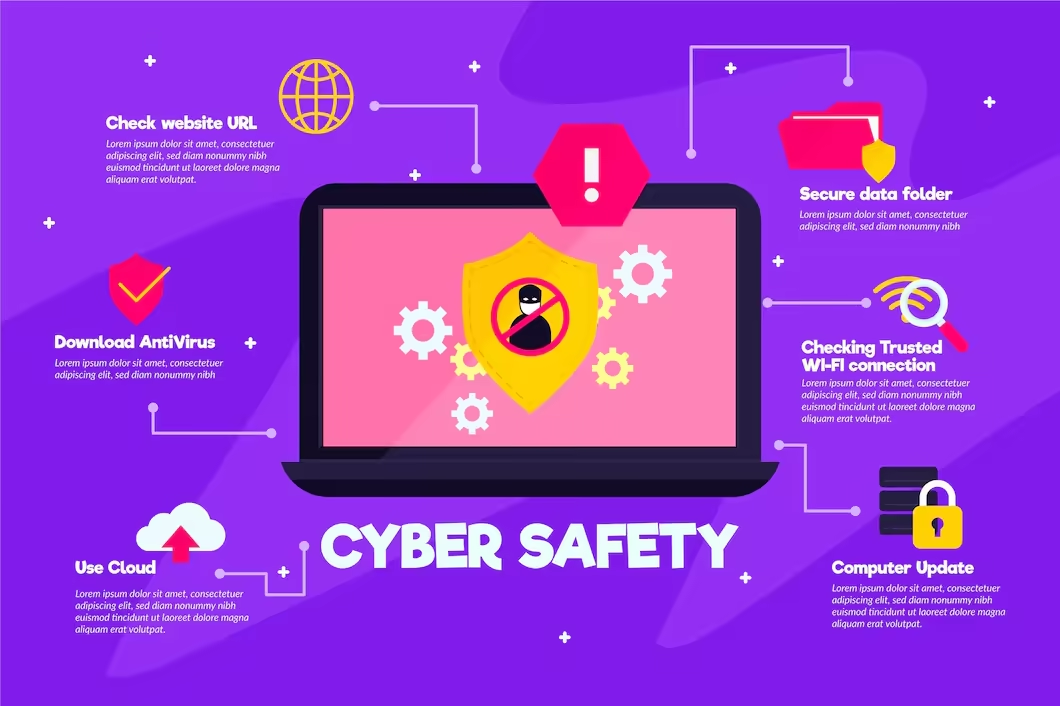Cybersecurity is one of the most serious issues facing businesses today. Not only does it pose a threat to your company's data, but it can also have an impact on your employees, customers, and reputation. Cybersecurity is one of the most serious issues facing businesses today. Not only does it pose a threat to your company's data, but it can also have an impact on your employees, customers, and reputation.
It pays to be vigilant about cyber security and take steps towards protecting your organization from attack. Health organizations should conduct HIPAA Risk assessment and implement a HIPAA compliance program. A risk assessment is an important tool that can help you identify potential security threats and develop mitigation strategies. They also help you stay on top of the latest regulations and compliance requirements, which can change frequently. In this blog post, we'll look at some of the best ways to improve your cyber security knowledge and protect yourself from online threats.
Keeping software up-to-date.
Keeping your software up-to-date is one of the best ways to protect your computer. Most companies release patches and fixes for their products regularly. These updates often contain critical security fixes that could prevent hackers from accessing your system through known vulnerabilities. In order to stay updated, you must check for updates regularly on all devices that you use or own, including computers and smartphones. You can do this by going into the settings menu of your device, which will show you which application needs updating and may even prompt you to install any pending updates if they are available at that time.
Avoiding opening suspicious emails
Regarding email, there's no question that you should be suspicious of emails from unknown senders. If you receive an email from a company or organization you do not normally correspond with, do not open the attachment or click on any links in the email. Even if it looks like a legitimate email, don't trust it. If you're ever unsure about an email, contact your IT department and ask them if they have sent any new messages recently. If you think that the email might be malicious in nature, delete it immediately without opening anything inside of it and notify someone within your organization who deals with cyber security issues so they can look into this matter further.
Checking links before you click for cybersecurity
Cybersecurity is an ever-growing concern for digital communication, making it imperative to be vigilant when clicking on links. Whether surfing the internet at home or searching through emails at work, take the time to make sure any link you encounter is safe before navigating. Always double-check where a website is taking you; many malicious sites will appear to be leading to well-known destinations or include suspicious extensions like "exe." Be sure to identify where the link is heading and trust only reputable sources for your browsing safety. Additionally, avoid downloading applications from untrustworthy websites that may contain malware and other viruses.
Keeping hardware up-to-date.
Keep your software and hardware up-to-date. Don't ignore that pop-up on your computer alerting you to a new Windows update or that notification on your phone asking if you'd like to update the latest iOS software. Update, update, update! This step is especially important if you're still running an older operating system, like Windows XP or Mac OS X Snow Leopard (10.6). These operating systems no longer receive support from their respective developers, so they are more vulnerable than newer versions (which have had time to fix bugs and vulnerabilities).
In addition to keeping software and hardware updated, ensuring you have reliable IT support is paramount for cybersecurity in the digital workspace. For businesses navigating the complex tech environment of San Francisco, securing 24/7 IT assistance in San Francisco is a strategic move to protect against unforeseen technical issues and cyber threats. This level of continuous support is vital for staying operational and ahead of evolving cyber risks.
Using a VPN to privatize your connections
A VPN (a virtual private network) is a tool that allows you to get around geo-restrictions or surveillance from your Internet service provider. In addition, it encrypts all of the data coming and going from your device, making it harder for hackers to access. This is especially useful if you’re using public Wi-Fi at a coffee shop or hotel; by using a VPN such as IP Vanish, you can feel confident that no one will be able to steal personal information about you.
Final Thoughts
In conclusion, the best way to keep your data secure is by using a VPN. This will protect you against many of the threats that are out there today. Many free options are available, with some even offering unlimited bandwidth and traffic. It's also important to ensure that all your software is up-to-date and have an anti-virus installed on any devices that connect directly to the internet.



